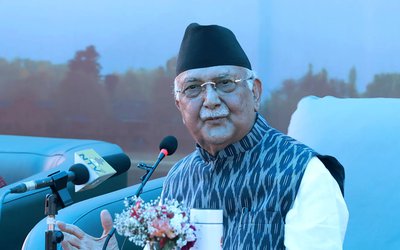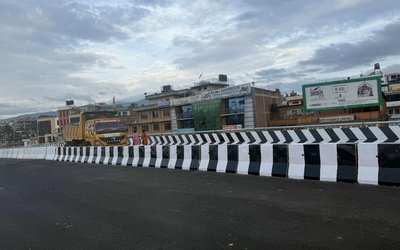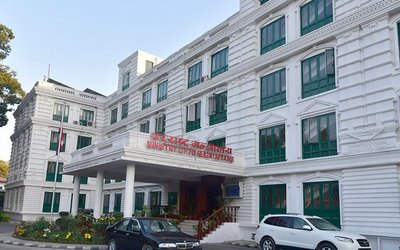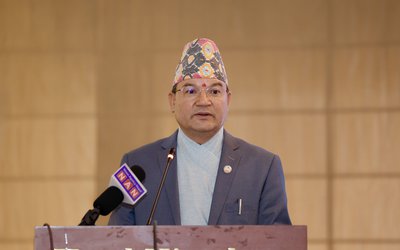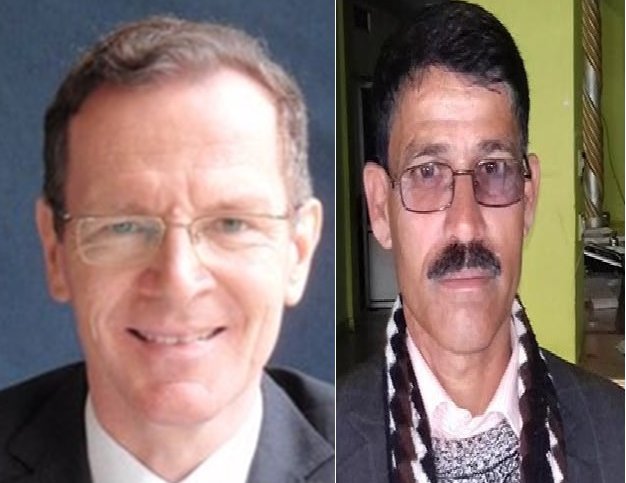
Chief Minister, Trilochan Bhatta of Province 7 and, German Ambassador Roland Schäfer jointly launched the RERA Programme in Dhangadi, Province 7. Renewable Energy for Rural Areas (RERA) is a joint technical support programme by the Government of Nepal (GoN) and the German Federal Ministry for Economic Cooperation and Development (BMZ). RERA is jointly implemented by AEPC and Deutsche Gesellschaft für Internationale Zusammenarbeit (GIZ) GmbH. BMZ contributes EUR 5 million for the period of 3 years (October 2016-September 2019) to RERA.
According to press release issued by German Embassy in Kathmandu, the over-arching vision for RERA is ‘to ensure efficient and effective service delivery of small-scale renewable energy through improved outreach and enhanced local cooperation in federal Nepal’. The RERA programme is supporting federalization in the Renewable Energy (RE) sector and works with federal, provincial and local governments, as well as with the civil society, private and banking sector for improving the energy situation in Nepal. Amongst other measures, RERA supports AEPC in the setting up of two Project Implementation Units (PIU), which are joint offices by AEPC and GIZ, in Province 1 and 7. Through these offices, RERA is able to reach out to provincial and local governments in Province 1 and 7 to deliver the following support:
To Governments of Province 1 and 7: set-up an energy section under the Ministerial Structure and to provide energy-related government-services to municipalities and citizens
To municipalities: Capacity and organizational development to enable them to promote and implement renewable energy
To AEPC: to adapt to the new federalized structure, and transform from an institution that implements RE directly to an institution that supports provincial and municipal governments
Beside these, the RERA programme works on crosscutting issues of Gender Equality and Social Inclusion (GESI) and access to finance by mainstreaming of inclusive approaches into RE planning, implementation and monitoring, as well as supporting financial institutions in making funds available for businesses and end-users to purchase and market energy products and services.
These are the expected outcomes of RERA for the benefit of Nepal:
- Provincial and local government are enabled to
promote RE effectively
- More people have access to modern and high-quality
energy services
- People and energy enterprises have a better access
to finance, local markets for energy services and products are strengthened,
and the private sector expands its activities
- Women and disadvantaged groups are involved in
planning and decision making processes for government energy programs, and are
equally benefitting from energy services
- Supreme Court upholds appointment of 52 officials
- Jul 03, 2025
- Weather Forecast: Generally Cloudy In The Hilly Areas With Heavy Rainfall In Some Areas Of Bagmati And Koshi Province
- Jul 03, 2025
- MCA-Nepal Welcomes Continued U.S. Support for MCC Nepal Compact Implementation
- Jul 02, 2025
- Sutlej to sell electricity from Arun III to Uttar Pradesh
- Jul 02, 2025
- PHDCCI India-Nepal Centre Organises “India-Nepal Fintech Summit 2025” In New Delhi
- Jul 02, 2025

